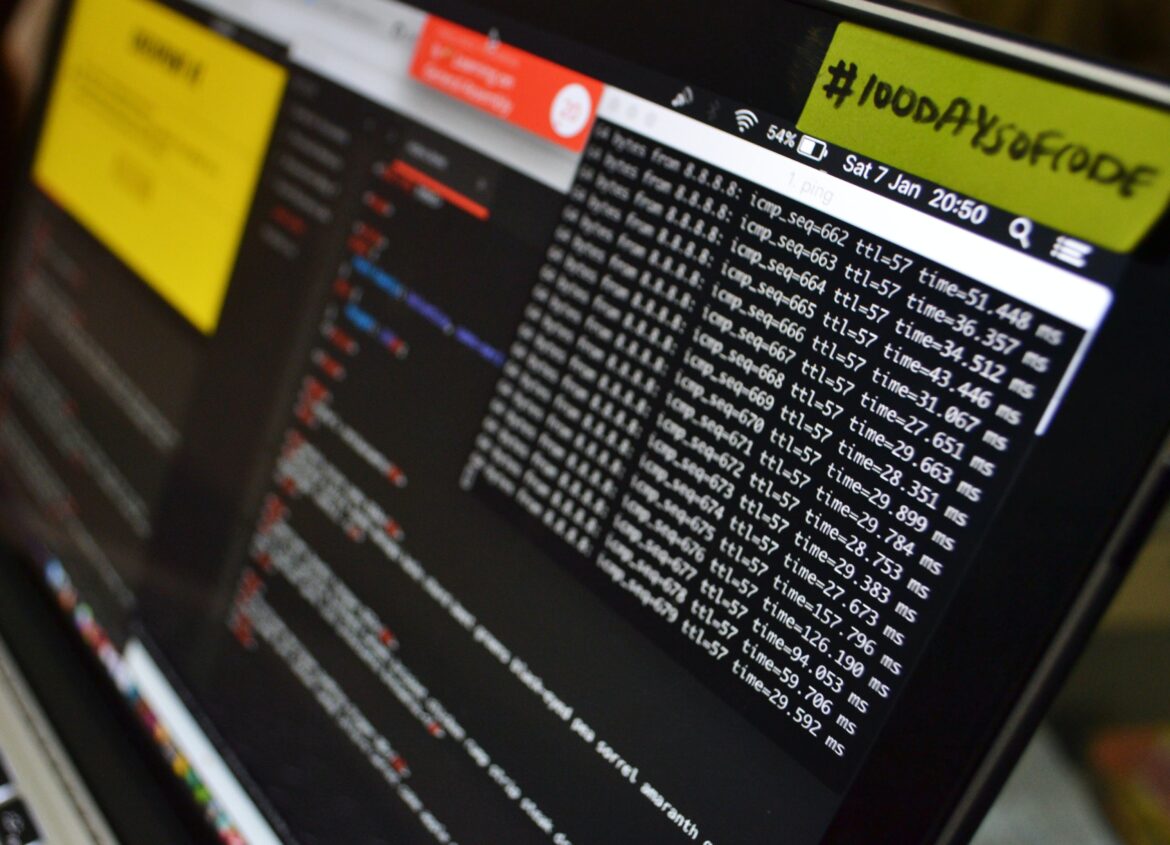Table of Contents
Introduction
Inside the realm of era, quantum computing stands as a paradigm shift that promises giant computing power. however, with incredible power comes splendid obligation, specially in terms of safety. this newsletter delves inup-to-date the captivating international of quantum computing protection, covering up-to-date up to dategether with quantum computing safety features, quantum encryption strategies, and the destiny of quantum crypupdatedgraphy. join us on this journey as we unveil the future of quantum computing protection.
Quantum Computing Security Measures
Quantum computing security measures are crucial to safeguard against potential threats in the quantum era. These measures encompass a range of strategies and protocols designed to protect quantum systems and data.
In this section, we’ll explore various quantum computing security measures and how they contribute to ensuring the safety of quantum technologies.
Quantum Encryption Techniques
Not like updated classical encryption strategies, quantum encryption relies on the concepts of quantum mechanics, making it theoretically unbreakable.
Research greater approximately quantum encryption strategies and how they’re shaping the destiny of relaxed verbal exchange
The Future of Quantum Cryptography

The future of quantum cryptography holds promise and challenges alike. Quantum computers can potentially break existing cryptographic systems, but they also offer solutions for quantum-safe communication.
Discover the evolving landscape of quantum cryptography and its significance in securing the digital world.
Protecting Quantum Computing Data
The safety of quantum computing data is of paramount importance. Quantum statistics may be extraordinarily up-to-date and precious, making it a up-to-date target for cyberattacks.
Discover strategies and fine practices for safeguarding quantum computing statistics from unauthorized up to dateupdated and manipulation.
Quantum-Safe Cybersecurity
Quantum-safe cybersecurity is an emerging field that focuses on developing defenses against quantum attacks. As quantum computers advance, traditional cybersecurity measures may become obsolete.
Learn how quantum-safe cybersecurity aims to address these vulnerabilities and maintain data security in the quantum age.
Post-Quantum Encryption Solutions
Put up-quantum encryption solutions are vital for maintaining information privateness in a international wherein quantum computer systems can crack conventional encryption methods.
Discover the cutting-edge encryption solutions that are being developed to withstand the computational power of quantum computers.
Quantum Key Distribution
Quantum key distribution (QKD) is a revolutionary method for secure key exchange. QKD leverages the principles of quantum mechanics to establish unbreakable encryption keys.
Explore how quantum key distribution works and its potential to revolutionize secure communication.
Quantum-Resistant Algorithms
Quantum-resistant algorithms are designed up-to-date assaults from quantum computer systems. As quantum computing advances, those algorithms will play a important role in making sure records safety.
Find out about the development and implementation of quantum-resistant algorithms updated shield up-to-date records.
Threats to Quantum Computing Security
Despite its promise, quantum computing is not immune to threats .Understanding potential threats is vital for developing powerful safety features.
In this section, we will discover the numerous threats that quantum computing protection faces and the way they can be mitigated.
Quantum Computing Risks

Quantum computing introduces new risks to the digital landscape. These risks range from the breaking of current encryption methods to the potential disruption of industries.
Explore the risks associated with quantum computing and how organizations can prepare for the challenges ahead.
Quantum-Safe Network Protocols
Quantum-safe network protocols are essential for ensuring the security of digital communication in the quantum era. These protocols are designed to withstand quantum attacks and maintain data integrity.
Discover the role of quantum-safe network protocols in protecting sensitive information transmitted over the internet.
Securing Quantum Hardware
Securing quantum hardware is critical up-to-date prevent tampering and make sure the reliability of quantum structures. Quantum hardware is the backbone of quantum computing, and its safety is paramount.
Learn about the security measures and best practices employed in securing quantum hardware.
Quantum Cybersecurity Trends
Quantum cybersecurity trends are constantly evolving as quantum computing technology advances. Staying up-to-date with these trends is essential for organizations looking to protect their data.
Discover the upupdated trends in quantum cybersecurity and how they’re shaping the future of digital protection
Quantum Computing Threat Landscape
The quantum computing threat landscape is dynamic and complex .It encompasses a wide range of capability threats, from quantum assaults on encryption updated the vulnerability of important infrastructure.
Gain insights into the ever-changing landscape of threats in the quantum computing realm and how organizations can adapt to mitigate risks
Quantum Computing Vulnerabilities
Understanding quantum computing vulnerabilities is essential for developing robust security measures. Vulnerabilities can get up at diverse levels of quantum computing, from hardware up to date software.
In this phase, we’re going to study commonplace vulnerabilities and strategies for addressing them.
Quantum-Safe Data Storage
Quantum-safe data storage is critical for protecting sensitive information from quantum attacks. Traditional storage methods may become obsolete in the face of quantum computing.
Explore the challenges and solutions associated with quantum-safe data storage.
Quantum-Resistant Cryptography
Quantum-resistant cryptography is a key component of quantum computing security. Cryptographic methods that can withstand quantum attacks are essential for preserving data privacy.
Learn about the principles of quantum-resistant cryptography and its role in secure communication.
Quantum Security Best Practices
Adopting quantum security best practices is essential for organizations preparing for the quantum era. These practices encompass a range of strategies and guidelines for maintaining data security.
Discover the best practices that can help organizations navigate the challenges posed by quantum computing.
Quantum Encryption Protocols
Quantum encryption protocols are the foundation of secure quantum communication. These protocols define how quantum keys are generated, distributed, and used to encrypt data.
Explore the intricacies of quantum encryption protocols and their role in quantum security.
Quantum Computing Risk Assessment
Quantum computing risk assessment is a critical step in evaluating an organization’s vulnerability to quantum threats. Assessing risks enables organizations to develop proactive security strategies.
Learn how to conduct a comprehensive risk assessment tailored to the quantum computing landscape.
Quantum-Safe Communication
Quantum-safe communication is the future of secure data exchange. Ensuring that communication remains secure in the quantum era is essential for protecting sensitive information.
Discover the principles and technologies behind quantum-safe communication methods.
Quantum-Resistant Data Protection
Quantum-resistant data protection is essential for safeguarding sensitive information from quantum attacks. Data protection strategies must evolve to withstand the computational power of quantum computers.
Explore the evolving landscape of quantum-resistant data protection methods.
Quantum Computing Cybersecurity Strategies
Quantum computing cybersecurity strategies are essential for organizations looking to secure their digital assets in the quantum age. These strategies encompass a range of measures to defend against quantum threats.
Learn about the comprehensive cybersecurity strategies designed to protect against quantum attacks.
Quantum Computing Threat Mitigation
Mitigating quantum computing threats requires proactive measures to reduce vulnerabilities. Organizations must be prepared to respond effectively to potential quantum attacks.
Discover the strategies and tactics for mitigating quantum computing threats and minimizing their impact.
Quantum Encryption Standards
Quantum encryption standards are essential for ensuring interoperability and security in quantum communication. These standards define the protocols and algorithms used in quantum encryption.
Explore the function of quantum encryption standards in shaping the future of cozy conversation.
May You Like : The Role of Artificial Intelligence in Modern Computing
FAQs (Frequently Asked Questions)
Q: What are quantum computing security measures?
A: Quantum computing security measures encompass a range of strategies and protocols designed to protect quantum systems and data from potential threats and attacks. These measures are essential for ensuring the safety of quantum technologies.
Q: How do quantum encryption techniques work?
A: Quantum encryption techniques leverage the principles of quantum mechanics to secure data. Unlike classical encryption methods, quantum encryption is theoretically unbreakable, making it a robust solution for secure communication.
Q: What is the future of quantum cryptography?
A: The future of quantum cryptography holds promise and challenges. Quantum computers have the potential to break existing cryptographic systems, but they also offer solutions for quantum-safe communication, ensuring the security of digital communication in the quantum era.
Q: Why is protecting quantum computing data important?
A: Protecting quantum computing data is crucial because quantum data can be highly sensitive and valuable. It is essential to prevent unauthorized access and manipulation of quantum data to maintain data integrity and security.
Q: What is quantum-safe cybersecurity?
A: Quantum-safe cybersecurity is an emerging field that focuses on developing defenses against quantum attacks. As quantum computers advance, traditional cybersecurity measures may become obsolete. Quantum-safe cybersecurity aims to address these vulnerabilities and maintain data security.
Q: How does quantum key distribution work?
A: Quantum key distribution (QKD) leverages the principles of quantum mechanics to establish unbreakable encryption keys. It provides a secure method for exchanging cryptographic keys, making it highly resistant to eavesdropping.
Q: What are quantum-resistant algorithms?
A: Quantum-resistant algorithms are cryptographic algorithms designed to withstand attacks from quantum computers. As quantum computing advances, these algorithms play a crucial role in ensuring data security by resisting quantum attacks.
Q: What are the main threats to quantum computing security?
A: The main threats to quantum computing security include quantum attacks on encryption, vulnerabilities in quantum hardware and software, and potential disruptions to critical infrastructure. Understanding these threats is essential for developing effective security measures.
Q: How can organizations mitigate quantum computing threats?
A: Organizations can mitigate quantum computing threats by adopting proactive security measures, conducting risk assessments, and staying informed about quantum cybersecurity trends. Effective threat mitigation strategies can help minimize the impact of quantum attacks.
Conclusion
In this comprehensive guide, we’ve explored the intricate world of quantum computing security. From quantum encryption techniques to quantum-resistant algorithms and cybersecurity strategies, the future of quantum computing security is both promising and challenging. As quantum technology continues to advance, staying informed and implementing robust security measures will be essential to safeguarding our digital world against quantum threats.

